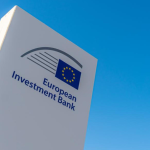Executive Summary
The integration of ESG practices has become a pivotal factor in attracting foreign investment globally. In Africa, the adoption of ESG principles is gaining momentum, driven by regulatory advancements, investor preferences, and a commitment to sustainable development. This whitepaper analyzes current ESG adoption trends in Africa and examines how these practices influence foreign investment inflows as of 2025.
Introduction and Background
Africa is home to some of the world's fastest-growing economies, with a growing middle class and increasing demand for goods and services. However, the continent still faces significant challenges in attracting foreign investment, with many investors citing concerns over governance, corruption, and environmental degradation. The adoption of ESG best practices can help mitigate these risks, improve transparency, and enhance the attractiveness of African companies to foreign investors.
Data and Analysis
ESG Adoption Trends in Africa
Regulatory Advancements: As of 2025, 23 African countries have integrated ESG measures into their financial market frameworks, with 15 offering incentives for issuing ESG assets, such as tax breaks, to encourage sustainable investments. Governments and regulatory bodies are establishing ESG-related guidelines and frameworks, such as the African Union's Agenda 2063 and the United Nations' Sustainable Development Goals (SDGs). South Africa’s JSE mandates IFRS S1/S2 compliance, while Kenya’s draft Carbon Credit Trading Act (2025) penalizes greenwashing.
Corporate Integration: Companies across Africa, from established firms like Netcare to startups such as Eversend, are increasingly incorporating ESG strategies into their operations, recognizing the long-term value and risk mitigation these practices offer.
Investor Demand: Foreign investors are increasingly seeking ESG-compliant investments, driving demand for African companies to adopt ESG best practices. Investors like BlackRock and International Finance Corporation (IFC) prioritize firms with verified ESG metrics, offering lower interest rates (e.g., Ecobank’s $750M sustainable finance program).
Increased awareness and adoption: More African companies are incorporating ESG considerations into their business strategies, with a focus on environmental sustainability, social responsibility, and governance.
Market Access: EU’s Carbon Border Adjustment Mechanism (CBAM) requires ESG compliance for exports, affecting African mining and agriculture sectors.
Impact of ESG Adoption on Foreign Investment Inflows
Enhanced Investor Confidence: Investors are increasingly seeking opportunities that align with sustainable and ethical standards. Companies demonstrating robust ESG practices are perceived as lower risk and more resilient, making them more attractive to foreign investors.
Access to Capital: Adherence to ESG standards can unlock new funding avenues, including green finance initiatives and impact investment funds, providing companies with the necessary capital for expansion and innovation.
Regulatory Compliance: Aligning with global ESG standards ensures compliance with international regulations, facilitating smoother cross-border operations and investments.
Market Differentiation: Companies with strong ESG credentials can differentiate themselves in the marketplace, appealing to a growing segment of consumers and investors who prioritize sustainability and ethical practices.
Increased foreign investment: ESG-compliant companies have attracted more foreign investment, with a significant increase in investment inflows from developed markets.
Improved credit ratings: Companies with strong ESG track records have seen improvements in their credit ratings, reducing their cost of capital and increasing access to funding.
Key Findings
- Strong Business Case: ESG-compliant firms attract 20–30% more Foreign Direct Investment (FDI) and benefit from 1–3% lower borrowing costs.
- Sector Opportunities: Renewable energy, agritech, and green finance are top targets for foreign capital.
- Barriers: Extractive industries dominate FDI but face ESG scrutiny; SMEs lack resources for compliance.
- Role of Financial Institutions: Banks like Stanbic and Ecobank are pivotal in scaling ESG-linked products
Challenges
- Greenwashing Risks: Weak enforcement allows 20% of firms to exaggerate ESG claims (e.g., extractive firms misreporting carbon offsets).
- Infrastructure Gaps: Limited renewable energy access and poor supply chain traceability hinder SMEs.
- Fragmented Standards: Mismatch between local frameworks (e.g., Nigeria’s SEC guidelines) and global standards (IFRS S1/S2).
- Data Transparency: Ensuring accurate and transparent ESG reporting is essential but can be difficult due to limited data collection and verification systems.
Recommendations
- Strengthen ESG Regulations & Compliance – Develop harmonized ESG standards across Africa to simplify compliance, reduce greenwashing, and align with global investment requirements.
- Enhance ESG Reporting & Transparency – Use internationally recognized reporting frameworks and technologies like blockchain to improve data accuracy and investor trust.
- Leverage Green Financing & Incentives – Expand initiatives like the Africa Green Finance Coalition and offer tax breaks to encourage ESG investment.
- Invest in Capacity Building – Provide training and resources to businesses on ESG best practices, risk assessment, and implementation strategies.
- Promote Cross-Border ESG Partnerships – Utilize the African Continental Free Trade Area (AfCFTA) to drive regional ESG collaborations, such as renewable energy projects and sustainable supply chains.
References








